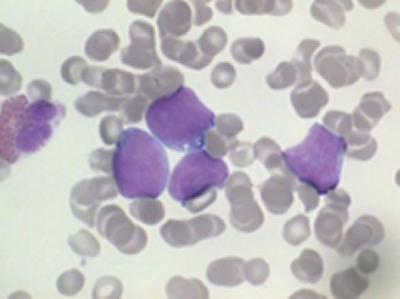Southampton scientists make breakthrough in understanding of rare blood cancer

A breakthrough in understanding of a rare form of blood cancer could lead to significant improvements in treatment for patients.
Scientists from the University of Southampton announced their findings at a prestigious scientific conference in San Fransisco on Sunday 7 December.
The team used various sophisticated ‘gene sequencing’ techniques to screen DNA from 175 patients with splenic marginal zone lymphoma (SMZL), a cancer of the immune system. They identified key genetic errors that can influence the speed at which the cancer develops in different patients.
SMZL generally develops slowly. After diagnosis patients are monitored and only start treatment when the disease reaches a stage when it is needed. It is a rare cancer, accounting for only 3% of all cases of lymphoma, and there has been little research into the disease until now.
Professor Jonathan Strefford presented his team’s findings at the American Society of Hematology’s Annual Meeting. The research was funded by the blood cancer charity Leukaemia & Lymphoma Research.
Professor Strefford, of the University of Southampton, said: “By revealing the genetic signs linked to a poor prognosis, doctors will be able to determine which patients have more aggressive cancer and require higher doses of drugs or treatment at an earlier stage.”
The scientists identified, for the first time, how individual gene faults connected to SMZL can influence a patient’s prognosis. Errors in the TP53 gene in cancer cells were shown to be ‘drivers’ of the cancer, potentially acting as a warning for doctors of shorter survival times. The presence of faults in the KLF2 and NOTCH2 genes indicated that patients generally required intensive treatment for their disease more quickly.
Dr Matt Kaiser, Head of Research at Leukaemia & Lymphoma Research, said: “Understanding how different genetic changes contribute to a patients’ disease has allowed us to make huge strides in designing treatments for many different blood cancers, but until now splenic marginal zone lymphoma has been a bit behind. This research could help doctors and patients make more informed choices about treatment plans, and help to significantly improve the outlook for this group of patients.”